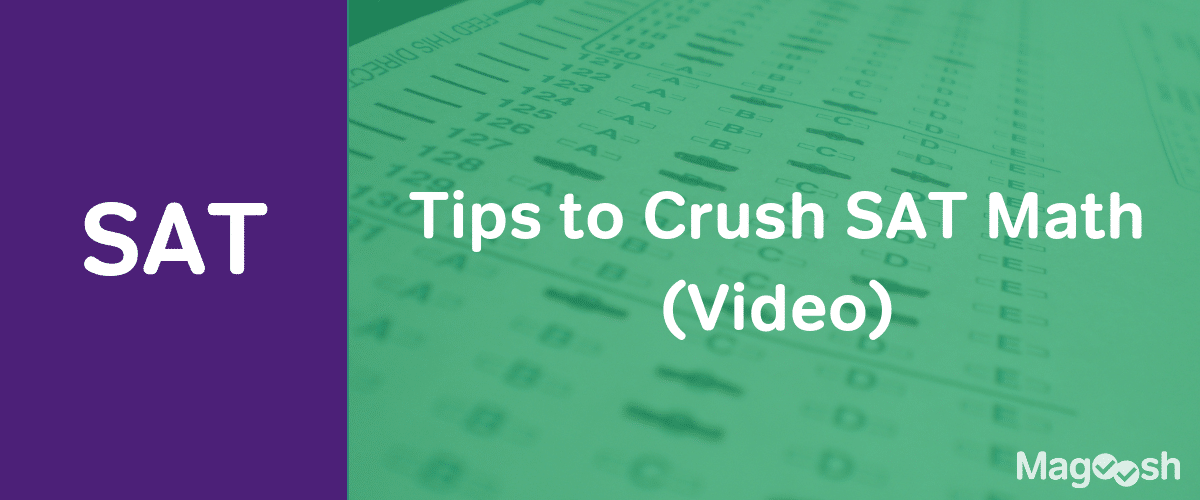You’ll probably get one or two questions about sequences on your SAT. Since they’re not a really big deal, don’t start your SAT studies here. Instead, spend some time on the bigger issues, like SAT geometry and SAT graphs. But if you’ve already mastered those, then it certainly doesn’t hurt to dig into the smaller details.
Before getting into the SAT’s dirty tricks, we’ll review the two basic types of sequences.
Arithmetic sequences
An arithmetic sequence increases by addition. It might look like this:
1, 3, 5, 7, …
If a is the first term, (1 in the example), and r is the change (2 in the example), an arithmetic sequence just adds one more r for each term of the sequence.
a, a + r, a + 2r, a + 3r, …
The formula for any one term in an arithmetic sequence is an = a + r(n-1), but don’t just memorize that formula. Look back at that sequence of odd numbers and ask yourself why the formula is true. You’ll be much better off on your SAT if you can understand how systems work. You want to be able to come up with the formula yourself without knowing it by heart.
Geometric sequences
Geometric sequences increase by multiplication. For example:
3, 6, 12, 24, …
Each number is the previous term multiplied by some constant. In this case, a (the first term) is 3, and r (the change) is 2. Since you’re multiplying that r again with each term of the sequence, the change is exponential.
a, ar, ar2, ar3, …
Again, look closely at how that example sequence represents the pattern. You should be able to create the formula yourself after spending enough time looking at the variables and the example.
Even though the SAT doesn’t require the formula to find the value of a term, just incase you’re curious: an = ar(n-1)
How the SAT uses sequences: easier questions
If you get a sequence question early in a math section of your SAT—where the easy questions are—it’ll probably just be about finding some the value of a term in the first few numbers of a sequence. You might see something like this:
1, 3, 9, x, 81,…
1. In the sequence above, what is the value of x?
A little later on in a section, they might just throw in some simple twist
x, 3, 9, y, 81,…
1. In the sequence above, what is the value of y–x?
If you don’t know whether a sequence is geometric or arithmetic, you need three terms to decide. Without that 81 above, this could easily have been an arithmetic sequence where x = -3 and y = 15.
Harder SAT sequences
Of course, the SAT likes to test your puzzle-solving abilities, so you might get a whole ‘nother kind of sequence with its own made up rules. In that case, those formulas won’t really help. Or, similarly, you might be asked how many numbers in a sequence share some property.
If you’re not sure what to do, it’s a good idea write out a few terms (or a few more terms) of a sequence and look for patterns.
As a matter of fact, that’s a good idea when you’re stuck on any SAT math problem. Map out the situation and look for a pattern.






Leave a Reply